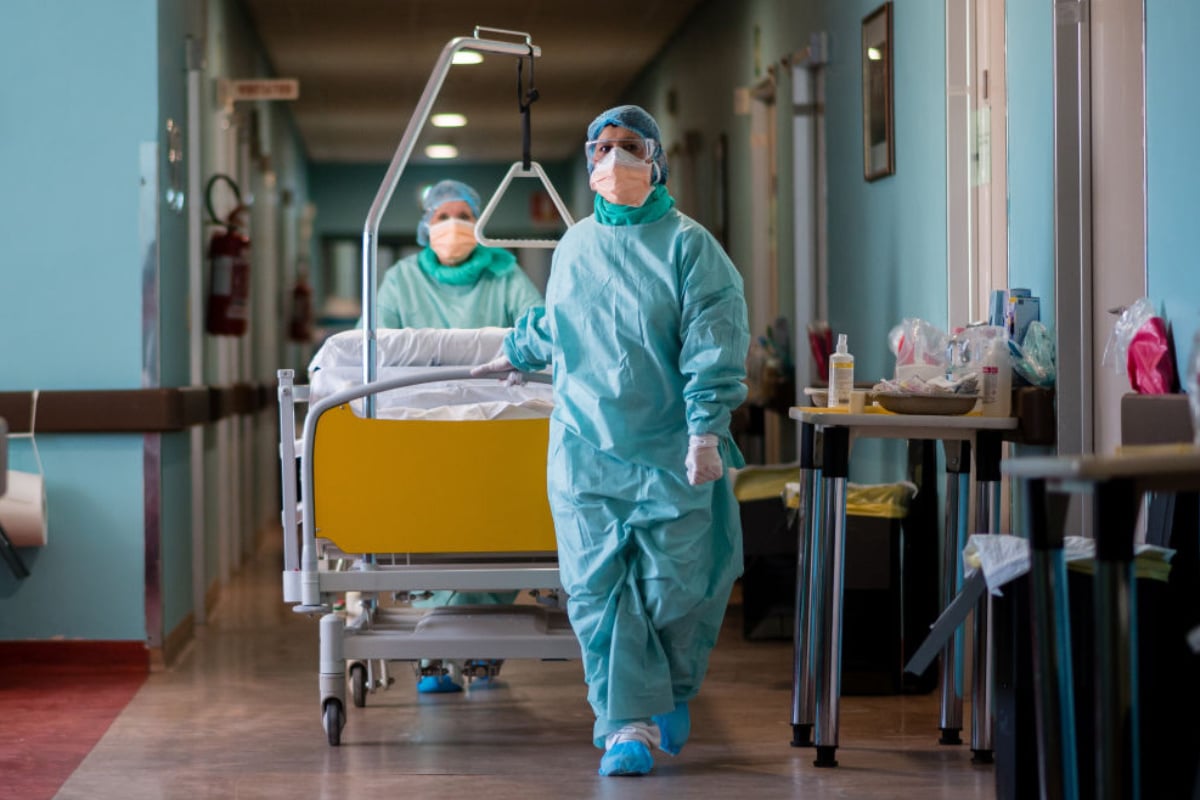
I work as a palliative care doctor in NSW. A large percentage of my work is treating patients who are at the end of their lives, keeping them comfortable – as well as complex psycho/social/bio symptom management. The patients we see are still primarily those suffering terminal cancers, and almost all of my patients are, at any given point, sick enough to die.
In Australia at least, we generally have (geography dependent) decent palliative care, and the majority of people under our care are comfortable when they die. Most die comfortably. Most do not suffer. Those who do have symptoms to address, we treat – with medication for pain, for nausea, for breathlessness, for anxiety, for a whole host of things.
Your COVID-19 questions answered by Mamamia’s Claire Murphy. Post continues after video.
What does this have to do with COVID-19? The introduction of a pandemic changes the way we live, but also the way we die. At the moment, people wish to die where they are most comfortable – and often this is at home. People generally want to die with family or loved ones about. People generally wish to be as comfortable as possible. All of these things are threatened by COVID-19.

Top Comments
It's a heartbreaking set of circumstances, but I do feel like it should be an option open to the family: that they should be able to say "We'll spend the time, in person, with our loved one without PPE and afterwards we'll go into self quarantine pending testing." That would prevent spreading anything further, but it would mean they're at risk of catching it themselves.
Sure, as long as they’re willing to go on a ‘low priority’ list for ventilators. That’s the only way we can allow people to knowingly expose themselves to infection, by ensuring that they aren’t then going to take resources away from an infected doctor or nurse or anyone that didn’t get to make that choice.
My 43 year old brother was ventilated when he died, he also had Influenza. All of his family (wearing protective equipment) were at his side when staff turned the ventilator off. No-one should die alone, especially children, even during this pandemic. As for the family members being a low priority for ventilators, how about we include those who are supposedly self isolating, but are not at home when the cops check on them? Or those people who flout the social distancing laws? The mental anguish of not being able to be with a loved one when they die can lead to long term grief issues.
Very good (if also very depressing) story.
Should we be raising money for iPads / whatever in hospitals so people don't die alone?
Old phones perhaps?
IT Security might be a big issue though.